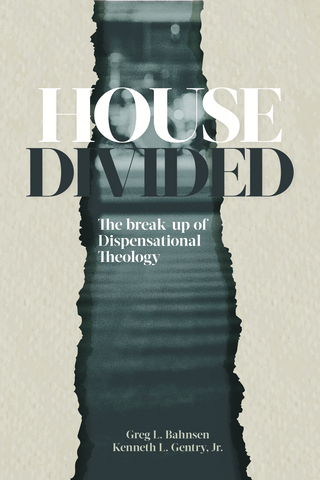Gary responds to comments made at an event with Todd Friel and several others about “dominionism” (with requisite scare quotes).
Of all the complaints which are brought against Reconstructionism in Dominion Theology, by far the most strained and scurrilous is the argument that the position, although innocent of some fault, is nonetheless guilty because it might lead to that fault. Over and over again House and Ice indicate that reconstructionism should be rejected because there is in it “the possibility” or “the danger” or “the tendency” or “the temptation” or “the potential” for some specified transgression to result from it.
The title of Chapter 15 in Dominion Theology is “The Dangers of Christian Reconstruction.” The list of things heretical and wicked which are laid at the feet of Reconstructionists is catastrophic: moralism, [yet] a spirit of compromise which abandons veracity for unprincipled pragmatism, leading the Church astray into apostasy, permeating Christianity with humanism, intermingling Christianity with non-Christian thinking or merging with the world’s system, making the preaching of the gospel secondary, bringing destructive non-Christian thought and influence into the Church, creating anti-Christian institutions, [yet] intermingling Church and state, synthesis with the world, [yet] encouraging a severe backlash against Christianity.
The reader should notice that, in their baseless diatribe against potential sins of Reconstructionism, House and Ice cannot even get straight on what they want to accuse Reconstructionism of; they fail to develop a consistent list of speculative dangers inherent in the system. These self-contradictions generated by House and Ice are denoted in the preceding list by the editorial insertion of “[yet].” Just look at the last one. On the one hand Reconstructionism will give into, compromise and synthesize with worldly attitudes, but on the other hand Reconstructionism is so opposed to and will diverge so sharply from worldly attitudes that the world will backlash against it! Well, which is it? Our imaginative authors have Reconstructionism simultaneously diminishing and increasing the antithesis between Christianity and the world. Likewise, having blasted Reconstructionism for tolerating mutual influence of believers and unbelievers (synthesis), House and Ice turn around and blast them for failing to tolerate the peaceful coexistence of wheat and tares! Are Reconstructionists too tolerant or not tolerant enough? House and Ice have reduced themselves to erratic potshots which fly at cross-purposes with each other in their book.

House Divided
The book that started a revolution. Bahnsen and Gentry stir the hornet's nest with this comprehensive refutation of Dispensationalism. The two pillars of law and eschatology are dealt with evenly, fairly—and most importantly—biblically. Bahnsen takes on the law sections, while Gentry handles the eschatology. Dispensationalism teaches that God has two distinct plans: one for Israel and one for the Church. Bahnsen and Gentry show clearly that God never intended or taught about separate plans. Quite the opposite, God's plan for Israel was but the first phase of His plan for the world. Jesus was both God's plan and His solution before the foundation of the world (1 Peter 1:17-21).
Buy NowGary responds to comments made at an event with Todd Friel and several others about “dominionism” (with requisite scare quotes). While none of the commenters had a very accurate idea about theonomy or biblical law, they boiled it down to being “moralism.”

